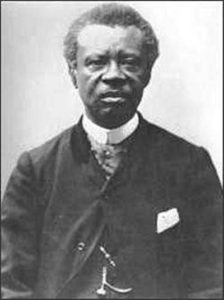Edmond Dédé
Edmond Dédé was a prominent African-American musician and composer in born in New Orleans in the nineteenth century.

Courtesy of Wikimedia Commons
Edmond Dédé. Dédé, Edmond
Edmond Dédé was a prominent African-American musician and composer in born in New Orleans on November 20, 1827. Born to free Creoles of color who had immigrated to New Orleans from the West Indies, Dédé received his early music education from his father, a bandmaster with a local militia unit. He first studied clarinet, but later turned to violin and studied under Ludovico Gabici, an Italian composer and conductor active in New Orleans. Additional studies in harmony and counterpoint were with Eugène Prévost, the French-born conductor of the Théâtre d’Orléans. After the Mexican War, fleeing the “implacable prejudice” of home, Dédé lived in Mexico from 1848 to 1851. Upon his return to New Orleans, he worked as a cigar maker, saving enough funds to move to Paris, France, in 1857 to continue his studies, where he was admitted to the Conservatoire. In 1860, he secured a job as conductor of the Grand Théâtre of Bordeaux. He spent most of his life in Bordeaux with the exception of short periods of work in Algiers, Marseilles, and his final years in Paris. He returned to New Orleans only once, in 1893, where he appeared in concert and was honored by various organizations, including an honorary membership on the Société des Jeunes-Amis, a fraternal organization of free Creoles of color in New Orleans. En route from Europe to New Orleans, he lost his favorite violin but went on to perform successfully with a replacement.
As a composer in Bordeaux, he wrote ballets, operettas, overtures, and more than 250 dances and songs. In addition to theatrical music, he wrote six string quartets and a cantata. His most celebrated compositions include the Quasimodo Symphony, Le Palmier Overture, Le Sermente de L’Arabe, and Patriotisme.The sheet music for his melody, Mon Pauvre Coeur, is the oldest surviving piece of sheet music by a Creole of color from New Orleans. He died in France in 1903.
